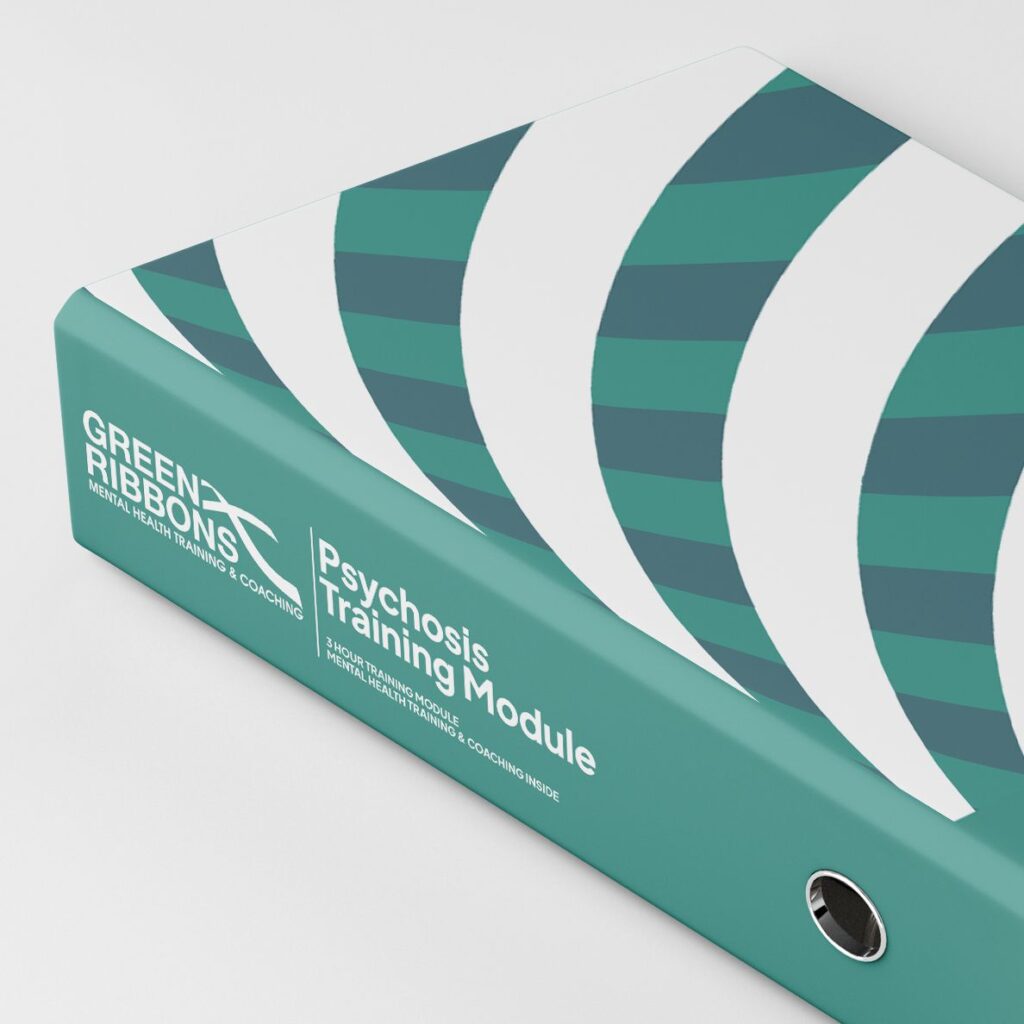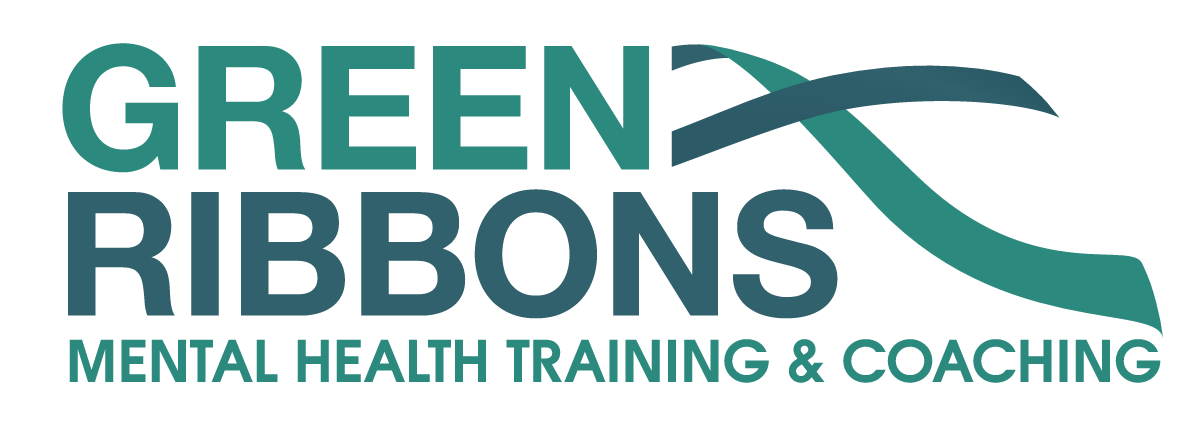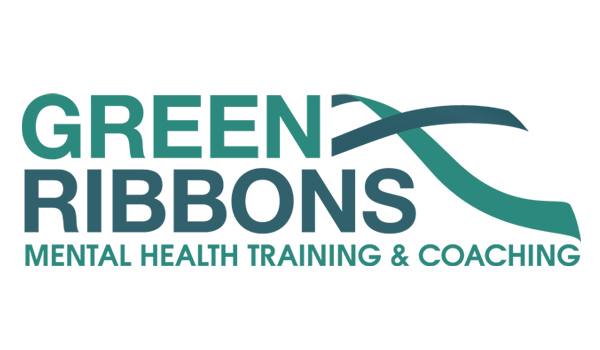Psychosis : Training Module

Welcome to the “Psychosis” Module, a comprehensive and stand-alone module developed to build upon the Scotland’s Mental Health First Aid (SMHFA) program. This course has been designed to provide you with a thorough understanding of psychosis, as well as equip you with the necessary skills and knowledge to identify, support, and respond to individuals experiencing a mental health crisis related to psychosis.
By the end of this course, you will have a solid understanding of psychosis and the skills necessary to support those affected by it. Whether you are a mental health professional, a caregiver, a teacher, or simply an individual seeking to broaden your knowledge, the “Psychosis” Module offers valuable information and practical strategies to enhance your ability to help those in need.
What’s on this page?
Course Basics
- 3 Hour Course
- Groups of 8-16
- Suitable for Businesses, Organisations & Groups
What is: Psychosis?
Psychosis is a mental health condition characterised by a disconnection from reality. It affects the way a person thinks, feels, and perceives their surroundings, leading to significant impairments in their daily functioning. People experiencing psychosis may have difficulty interpreting the world around them, often due to the presence of hallucinations, delusions, or disorganised thinking.
Hallucinations involve experiencing sensations that are not real, such as hearing voices or seeing things that do not exist. Delusions, on the other hand, are false beliefs that persist despite evidence to the contrary. These beliefs often involve paranoia or grandiosity, and can cause significant distress to the individual. Disorganised thinking refers to a person’s difficulty in maintaining coherent thoughts, speech, or behaviour, which can further impair their ability to interact with others and engage in daily activities.
The exact cause of psychosis is not fully understood, but it is believed to be a result of a combination of genetic, neurobiological, and environmental factors. Various mental health conditions, such as schizophrenia, bipolar disorder, and severe depression, can present with psychotic symptoms. In some cases, substance abuse, medical conditions, or extreme stress can also trigger episodes of psychosis.
Early intervention and appropriate treatment are crucial for managing and recovering from psychosis. Treatment options may include a combination of medication, therapy, and psychosocial support. By addressing the underlying causes and providing tailored support, many individuals experiencing psychosis can lead fulfilling lives and achieve significant improvements in their mental health.
The Facts & Figures: About Psychosis
- Prevalence: Approximately 3% of the Scottish population will experience an episode of psychosis at some point in their lifetime (Mental Health Foundation).
- Age of Onset: The majority of first-episode psychosis cases in Scotland occur between the ages of 18 and 35, with a slightly higher rate among males (Scottish Government).
- Treatment Gap: Nearly 50% of individuals experiencing psychosis in Scotland do not receive timely and adequate treatment, highlighting the need for improved access to mental health services (Scottish Association for Mental Health).
- Economic Impact: The annual cost of psychosis in Scotland is estimated to be over £1 billion, accounting for healthcare expenses, lost productivity, and other related costs (Mental Health Foundation).
- Comorbidity: Around 70% of people with psychosis in Scotland also experience at least one other mental health disorder, such as anxiety or depression (NHS Scotland).
- Comorbidity: Around 70% of people with psychosis in Scotland also experience at least one other mental health disorder, such as anxiety or depression (NHS Scotland).
The Problem: Common misconceptions about Psychosis
Negative & damaging attitudes towards Psychosis are common: There's something you can do for yourself, your friends, your family and your colleagues...
Psychosis: Why should you undertake this training?
By completing the Psychosis Module, you will become more aware of the complexities of psychosis, its diverse presentations, and the appropriate responses in various situations. Whether you’re seeking to support a loved one or enhance your own mental health, this course offers practical guidance for fostering a healthier, more balanced life, better understand and tackle psychosis, and contribute to a world where mental health is treated with the same importance as physical health.
The Good news: There is a training module which will enhance your understanding, and foster empathy and support for those experiencing mental health challenges
Three Hour Module: Psychosis
Whether you are a mental health professional, educator, caregiver, or simply someone seeking to broaden their understanding of mental health, the “Psychosis” module offers an exceptional learning opportunity. Through a combination of informative content, practical strategies, and real-life examples, this course will empower you to make a difference in the lives of those experiencing psychosis. Embark on this transformative journey today, and join countless others who have already benefited from the knowledge and skills acquired through the “Psychosis” module.
What does the “Psychosis” Module Cover?
How does the "Psychosis" module work?
Duration
The module takes 3 Hours, providing a focussed and comprehensive learning experience.
Small Group Sizes
Classes, of 8-16, are kept small to facilitate personalised attention, encourage active participation, and foster a supportive learning environment.
Interactive Learning
The course features a mix of presentations, group discussions, case studies, videos, and role-playing exercises to ensure a practical, hands-on learning experience.
Confidentiality
Instructors maintain a safe and confidential space for participants to share their experiences and ask questions without judgment.
Ready to find out more? Contact Us Today
Why Train with Green Ribbons?
Unraveling the Threads of Mental Well-being
Green Ribbons is dedicated to delivering high-quality Mental Health First Aid training in Scotland, empowering individuals to recognise mental health challenges, provide support, and foster a culture of empathy and understanding. By tying together knowledge, empathy, and resilience our accessible mental health training promotes understanding, reduces stigma, and enables individuals, businesses and communities to prioritise mental well-being. Everyone benefits from Mental Health Awareness Training
Our Experience
- 30 Years working within the Mental Health sector
- Experience across a range of Third-Sector Organisations
Our Specialties
- Scotland’s Mental Health First Aid (SMHFA)
- Tailored SMHFA Training
- Individual Mental Health Awareness Modules
- One-to-one Training & Coaching
Our Approach
- Empathy & compassion
- Inclusive
- Evidence-based and up-to-date
Our Areas
- Moray
- Highland
- Aberdeenshire
- Aberdeen City
- …across Scotland
07726 780800
Call
Call us for an Informal chat about Scotland’s Mental Health First Aid and Mental Health Awareness Training
- We can discuss how SMHFA can benefit your organisation and explore options
info@greenribbons.co.uk
@GreenRibbonsHQ
Socials
- Facebook: @GreenRibbonsHQ
- Twitter: @GreenRibbonsHQ
- Instagram: @GreenRibbonsHQ







